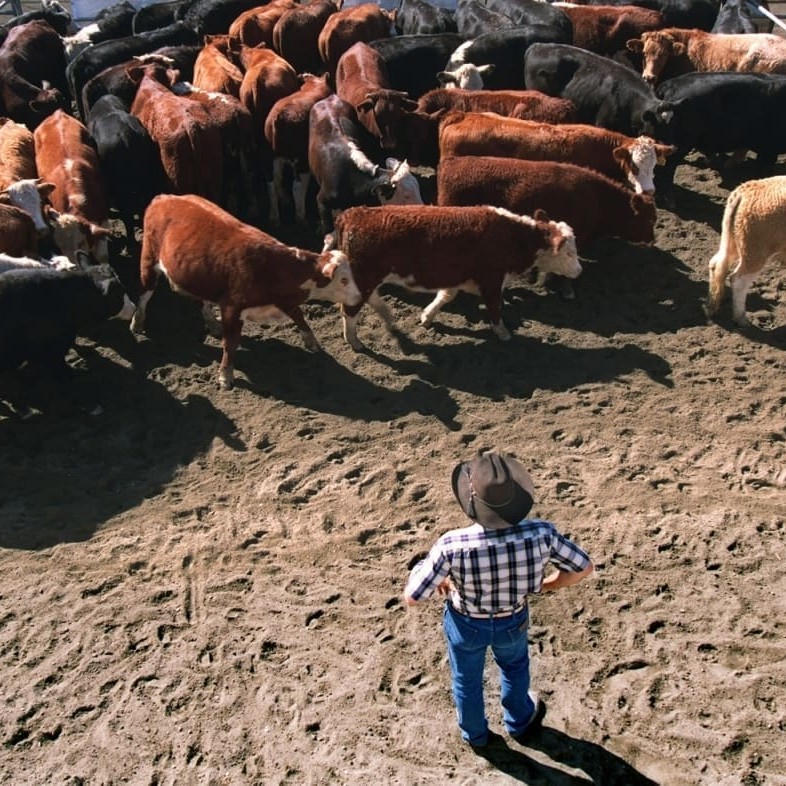 With agistment activity likely to increase if the current desperately dry season continues, producers considering sending cattle away should familiarise themselves with changes to Federal laws under the Personal Property Securities Act.
With agistment activity likely to increase if the current desperately dry season continues, producers considering sending cattle away should familiarise themselves with changes to Federal laws under the Personal Property Securities Act.
In essence, the changes to the law mean ownership of cattle agisted on a property for 12 months or more can under some circumstances be jeopardised, if the agistment property goes into receivership or insolvency.
The development was brought to Beef Central’s attention while visiting North Queensland earlier this week, where at least one local producer is involved in such a case. Hundreds of cattle are involved.
Beef Central approached well-known Brisbane agribusiness lawyer Bill Loughnan, a partner in Thynne & Macartney, for an explanation about the significance of the changes to the Personal Property Securities Act.
He said the new legislation introduced last year could affect ownership of cattle on agistment, or under lease agreements. They could also apply to plant and equipment in someone else’s possession.
“It’s an important issue, from the beef industry’s point of view. But until somebody gets caught, and word about the financial risk gets around the grazing community, people often just tend to ignore such matters,” Mr Loughnan said.
“The concerns do not arise if the lease or agistment agreement is for a fixed term of less than 12 months. But a lot of our clients use ongoing agistment or lease agreements that run for years, and the deals are often done on a handshake,” Mr Loughnan said.
In other cases, livestock owners entering into agistment agreements might have every intention of bringing cattle home after a few months, but depending on seasonal conditions, the term could creep past the 12-month timeframe, unknowingly exposing the ownership of the stock to risk.
Under the new Act, it was necessary to lodge the details of the relocation of stock, which were likely to be located on the second property for 12 months or more with the Personal Property Securities Register.
 “To register on the PPSR, the arrangements and details have to be in writing, for a start,” Mr Loughnan said.
“To register on the PPSR, the arrangements and details have to be in writing, for a start,” Mr Loughnan said.
For one client, who had smaller mobs of cattle scattered across a number of agistment properties, Thynne and Macartney had developed a ‘template’ agreement form to simplify the process.
“It does not have to be a specially-drafted document for each case, particularly when mob numbers are small,” Mr Loughnan said.
The PPSA is regarded in legal circles as one of the most fundamental reforms to laws affecting Australian businesses since the GST was implemented more than a decade ago. It has wide-ranging impact, because it applies to a wide range of assets, other than land.
“Under the old rules, if you owned something, then it was yours in almost every situation,” Mr Loughnan said.
“But possession, now, is king. Under the new rules, if you give somebody something (in the beef industry’s case, stock, plant or equipment, for example), ultimately you can lose title if they go broke – unless it is lodged on the PPSR register.”
The rationale for registration on the PPSR is to ensure that third parties are aware of ownership of the asset (livestock, for example) when they are depastured on someone else’s property.
Under the PPS Act, the definition of ‘security interest’ imposes an additional layer of bureaucracy on Australian agribusiness, because the definition captures many common agricultural arrangements including agistment agreements and livestock leases.
The changes to the law require registration of a number of ‘security interests’ to protect not only rights of creditors but also, ownership. These ‘security interests’ include:
- charges, mortgages and pledges
- commercial arrangements that secure payment or performance of an obligation by one entity to another. For example, the PPSA now extends to retention of title arrangements, hire purchase arrangements and leases; and
- certain commercial arrangements that don’t necessarily secure payment or performance of an obligation. These arrangements are known as “deemed security interests.” This category includes the previously mentioned agistment agreements and leases of livestock, as well as arrangements where an owner of stock or plant and equipment parts with possession of those goods.
Serial-numbered goods (such as motor vehicles, aircraft or earthmoving equipment) that are leased or otherwise in someone else’s possession for a period of more than 90 days and any other items of stock, plant and equipment that are leased or in another’s possession for more than 12 months must also be registered on the PPSR in order to protect ownership.
“A failure to register a security interest on the PPSR may result in the owner losing their title, if the party who has possession of those goods becomes insolvent, bankrupt or enters into liquidation or unlawfully sells those goods to someone else,” Mr Loughnan said.
One advantage seen in the new legislation was that the process had now moved to one Federal system, replacing 27 State and Territory registers.
Another aspect to the issue raised with Beef Central by North Queensland stock agent, Tim McHugh, was that in some cases, individuals offering agistment on their property may be looking for cash flow, in order to satisfy the pressing demands of their banker.
This, in itself, could push some agisters into a ‘higher-risk’ category in terms of potential for financial collapse, and subsequently tying-up longer-term agisted cattle in ownership disputes, unless they are registered with the PPSR.
- Bill Loughnan can be contacted for further discussion at Thynne & Macartney on 07 3231 8839 or email bloughnan@thymac.com.au



HAVE YOUR SAY